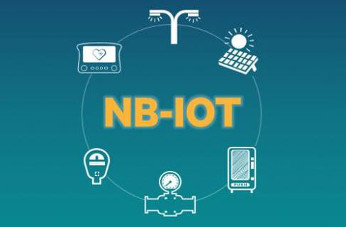Russian telecom operators have begun testing NB-IoT SIM cards for the Internet of Things
 Recently it became known that Russian telecom operators began testing SIM cards for the NB-IoT communication standard. It is designed for the Internet of things, so that such SIM cards can be used together with the corresponding devices. According to market participants, the communication standard will become especially popular after the legalization of the eSIM technology, which will make it possible to abandon the usual SIM cards.
Recently it became known that Russian telecom operators began testing SIM cards for the NB-IoT communication standard. It is designed for the Internet of things, so that such SIM cards can be used together with the corresponding devices. According to market participants, the communication standard will become especially popular after the legalization of the eSIM technology, which will make it possible to abandon the usual SIM cards.Kommersant reports that MTS has released a new standard SIM card as part of a pilot project. It will be implemented in 16 cities of Russia, where the operator’s network is deployed. MTS will release three types of SIMs for the Internet of Things gadgets. These are ordinary sim cards, thermo sim cards for working in regions with very cold climates and sim chips for small devices.
By the end of this year, the company plans to provide full NB-IoT coverage in all major cities with a population of at least a million people, as well as to provide various services for working with smart devices.

')
It should be noted that the State Commission on Radio Frequencies allowed the Big Four at the end of 2017 to work with communication systems of the NB-IoT standard. The fact is that, on the basis of already existing permissions for the use of frequencies of GSM, LTE standards and subsequent modifications, it becomes possible to work with NB-IoT. Solutions based on this standard may well be in demand in transport, logistics, energy, utilities, retail, medicine, security monitoring and control systems, plus the infrastructure of a “smart city”.
There are also competing standards - for example, Sigfox, LoRaWAN, they work in unlicensed frequency bands. LoRaWAN is developing ER-Telecom Holding, which in September announced the launch of the industrial Internet of things network in 52 cities of Russia.
In addition to MTS, MegaFon is also involved in the development of this technology. To connect to a new service, customers do not need to change SIM cards, you need to connect a special rate, then setting up the “Internet of things for business”. True, in order for everything to work, it is necessary to support the standard by the device itself, in which the card is located.
In addition, NB-IoT plans to test the Tele2 operator in work, initially the tests will be conducted in Moscow. One more operator, who will soon launch a new technology - VimpelCom, this company has been working in the b2b sphere for quite a long time, providing customers with industrial SIM cards in different form factors. If energy-saving SIM chips and embedded digital SIM cards appeared on the market, then this could be just a breakthrough.

Analysts claim that at least 13 million SIM cards of the Internet-things currently work in Russia. This is a little over 5% of the total number of active SIM cards. A separate network for servicing the huge number of sensors built into devices may soon be needed simply because there are more and more IoT devices. “At the same time, devices operating in this mode assume the presence of an already built-in eSIM electronic chip, which would be programmed to work with a specific telecom operator,” said Sergey Polovnikov, head of the Content-Review.
Unfortunately, in Russia, the use of eSIM technology is prohibited at the legislative level, for this reason, operators will have to be content with the authentication method based on regular physical SIM cards. As soon as legislation is adapted for new technological trends, the need for physical SIM cards will disappear.
The Ministry of Communications earlier promised to develop the necessary amendments to the current rules for the provision of communication services, but so far there are none. Operators are testing eSIM in order to be able to quickly implement a new technology after approval by its legislators.
Last summer in Russia, the NarrowBand Fidelity (NB-FI) standard was developed for use in a narrow frequency band. Transmitters that work with this technology can exchange data at distances up to 10 km, they have been working from one battery for about 10 years.
According to the developers, the base station of the standard NB-FI will cost around 100-150 thousand rubles, the radio module for connecting the device to the Network is about 800 rubles, the cost of controllers for collecting and transmitting information from the meter is up to 200 rubles , the cost of the battery - 50-100 rubles .
Source: https://habr.com/ru/post/427643/
All Articles